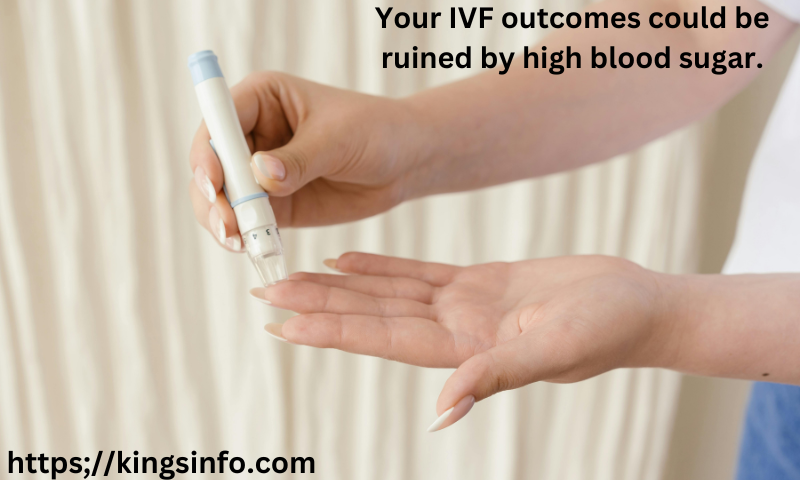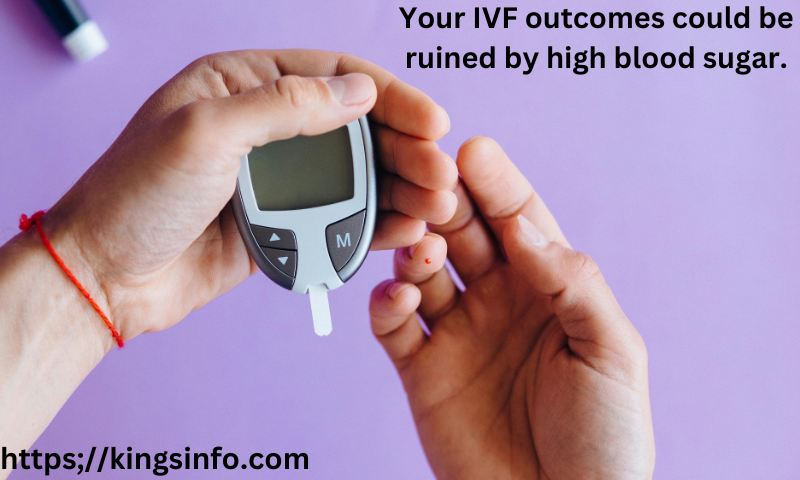Having trouble with IVF? The secret difficulty can be diabetes. These guidelines will help diabetic men and women approach IVF with caution blood sugar and fulfill their aspirations of becoming parents.
Did you know that diabetes can damage blood vessel health, egg and sperm quality, and hormonal balance, all of which can affect the results of IVF? “High blood sugar can interfere with ovulation for diabetic women and reduce sperm motility and integrity for men,” revealed Dr. Nandini Devi, gynecologist, obstetrician, and infertility specialist, center head at Indira IVF in Chennai, in an interview with HT Lifestyle.
“Uncontrolled diabetes raises the risk of complications, including miscarriage, congenital abnormalities, and pregnancy-related hypertension,” she continued. To increase success rates and reduce problems, blood glucose levels must be controlled both before and during IVF.
- Egg quality and quantity: Hormonal imbalances caused by diabetes can affect ovarian function, lowering the amount and quality of viable eggs. This makes it difficult to obtain the high-quality eggs required for an IVF procedure to be effective.
- High blood sugar levels can also have an impact on the quality of embryos, decreasing their likelihood of implanting and developing inside the uterus.
- Risks of miscarriage and preterm delivery: Because of issues with blood sugar regulation during pregnancy, women with diabetes are more likely to experience miscarriage and premature birth than women without the disease.
- Diabetes has an impact on male fertility by decreasing sperm motility and quality, which may hinder IVF fertilization results.
- Other risks: Women with diabetes are more likely to develop preeclampsia, a disorder marked by elevated blood pressure that can cause problems for both the mother and the unborn child. Additionally, children born to moms with diabetes are more likely to have congenital defects and to need a cesarean section because of possible complications.
Diabetes-related Risks and factors to Take into account

Dr. Nandini Devi advised patients who use IVF to coordinate their prenatal care with endocrinologists and reproductive specialists. “Diabetic patients who use IVF are more likely to experience complications like gestational diabetes, preeclampsia, and high birth weight,” she warned.
To regularly monitor blood pressure, blood glucose, blood sugar and fetal growth throughout pregnancy, coordination between the obstetrician, endocrinologist, and fertility specialist is crucial. This team-based strategy offers thorough support and aids in risk management.
Dietary blood sugar and lifestyle recommendations
“A low-glycemic, balanced diet rich in lean proteins, whole grains, and plenty of vegetables is beneficial for managing blood glucose levels,” Dr. Nandini Devi suggested helping diabetic patients undergoing IVF achieve better fertility results and blood sugar control. Because stress can worsen blood sugar swings, patients should strive for regular exercise, restful sleep, and stress-reduction techniques like yoga or meditation. Avoiding alcohol, processed foods, and sugary drinks can also help.
Notice:
This material is not meant to replace expert medical advice but is meant to be informative only. If you have any queries concerning a medical problem, you should always consult your doctor.


